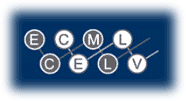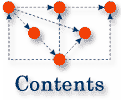
QUEST Romania
Romanian Association for
Quality Language Services
Laura Muresan & Valentina Robu

AIMS
- to support Romania's European and international integration process, through specific means
- to promote the teaching of modern languages and ensure the quality of the process in accordance with the highest standards possible
- to support the activity of the Language Centres - both full and observer members - with a view to permanently improve the quality of the language services offered.
HISTORY
The Romanian Association for Quality Language Services QUEST Romania was
created in May 1996 by seven Language Centres and the British Council
Romania.
During the preparatory period (1995-1996), the directors and other key staff members of the founder member schools
- benefited from EAQUALS expertise, e.g. the seminar conducted by Frank Heyworth in Timisoara, December 1995, finalised with the Statement of Intent for the setting up of the national association;
- attended ELT-management courses and seminars (e.g. with IELE - Lancaster University, coordinated by John McGovern) with the support of the British Council;
- participated in the Inspection training course conducted by highly experienced EAQUALS / Eurocentres experts, within the framework of a Know How Fund project. The aims of this course - conducted by Hilary Maxwell-Hyslop and Martyn Ellis - included finalising the QUEST inspection scheme, producing the necessary documentation, and training the course participants as inspectors.
- management consultancy to the Language Centres teams by Mr Michael Hall, British Council advisor and project manager (1994 - 1996).
The quality documents were produced using the EAQUALS inspection scheme (Version 3) and FIRST Charters as sources of inspiration, adapting them to the Romanian reality while making sure that all the newly designed documents reflected the concern for and commitment to quality and good practice.
All the founder member schools were inspected in 1996-1997. Out of 7 founder schools inspected, 6 became full members of QUEST Romania.
After the first round of inspections, QUEST applied for associate membership to EAQUALS in November 1997, at the EAQUALS conference held at the Council of Europe in Strasbourg. QUEST Romania became an Associate Member of the European Association in February 1998.
In the meantime QUEST has been joined by other language schools sharing the same aims and values, with more preparing for affiliation. QUEST is actively involved in supporting the activity of the Language Centres - full and observer members - and promotes networking and the exchange of expertise amongst its members. It has also developed extensive links with other national and international organisations with similar aims, particularly with the Cultural Institutes in Romania, the national associations in the region, teacher associations and educational NGOs in the country.
QUEST Romania is a dynamic promoter of the European concepts and instruments developed for a more coherent approach to language learning, teaching and evaluation, such as the Common European Framework and the European Language Portfolio. QUEST Romania has produced the pilot translation into Romanian of the EAQUALS-ALTE version of the European Language Portfolio and has organised teacher training workshops and conferences country-wide for the implementation of the ELP.
As a result these activities, QUEST has been included - through an Order issued by the Romanian Minister of Education - in the national education system, under 'Continuing Education'.
ORGANISATIONAL STRUCTURE
QUEST is governed by a Committee of 7 members elected by the General Assembly.
Each member has clearly defined responsibilities in the areas of inspection
and accreditation, marketing, finance, liaising with national and international
organisations, projects, and general management.
The Chair of QUEST is elected by the General Assembly for a one-year term, renewable for another year. At the moment, presidency is shared between two co-presidents to better cover the increasing range of activities.
MEMBERSHIP
Membership of QUEST Romania includes full and observer members from all
over the country. In order to qualify for full membership, schools have
to go through observer status for a year and then apply for an inspection.
It is only after passing the QUEST inspection that full membership status
is granted.
THE INSPECTION AND ACCREDITATION PROCESS
The entire inspection procedure is carried out according to the principles
set out by EAQUALS, so that both the QUEST schools and the inspectors
acknowledge with gratitude the impact EAQUALS has had on the professional
development and consolidation of the Romanian Association.
The inspection is carried out using the QUEST Code of Practice and the Checklist for Inspections. It lasts for at least one day and is carried out by two inspectors from different cities. A QUEST member school is inspected every three years.
Over the last two years, QUEST has participated in the ELTeCS project for Central - Eastern Europe, coordinated by OPTIMA Bulgaria, which involved QUEST inspectors carrying out joined inspections with Bulgarian colleagues according to the Bulgarian inspection scheme, as well as OPTIMA inspectors participating in QUEST inspections alongside with Romanian co-inspectors. Learning from each other in this five-country project has been an exceptionally enriching experience for everyone involved - both at a personal and at an organisational level.
In addition, QUEST has developed a system of pre-association visits, on the example of the procedures introduced by the Bell Educational Trust for the international network: prior to a school's becoming an observer member, there is a pre-association visit, paid by a representative of a QUEST school from another city.
INSPECTION CRITERIA AND GRADING
The four main areas of inspection are Management and Administration,
Academic Management, Teaching and General.
In line with EAQUALS grading procedures, the QUEST grading system is based
on a 1-3 scale, where
1 = good, 2 = satisfactory, 3 = unsatisfactory.
The inspectors give final grades to the four main categories on the Summary
Evaluation Sheet of the Inspection Report. The sub-categories of each
main category are graded on the 1-3 scale, and the grades are then used
to decide an overall grade for each main category.
In order to achieve a pass a school must receive at least grade 2 in each
of the main categories. A grade 3 in any sub-category will normally mean
referral in that sub-category except in the following cases: a grade 3
in a Teaching sub-category or in Premises means that the school fails
the inspection.
THE INSPECTORS
The inspectors have been thoroughly trained through the inspections course
conducted by EAQUALS experts (as mentioned above) and have contributed
to the design of the national quality documents. They come from QUEST
schools, and are fully qualified and experienced language centre directors
and academic managers. Additional assets include experience in teacher
training and knowledge of several languages.
WEB SITE: www.quest.ro
